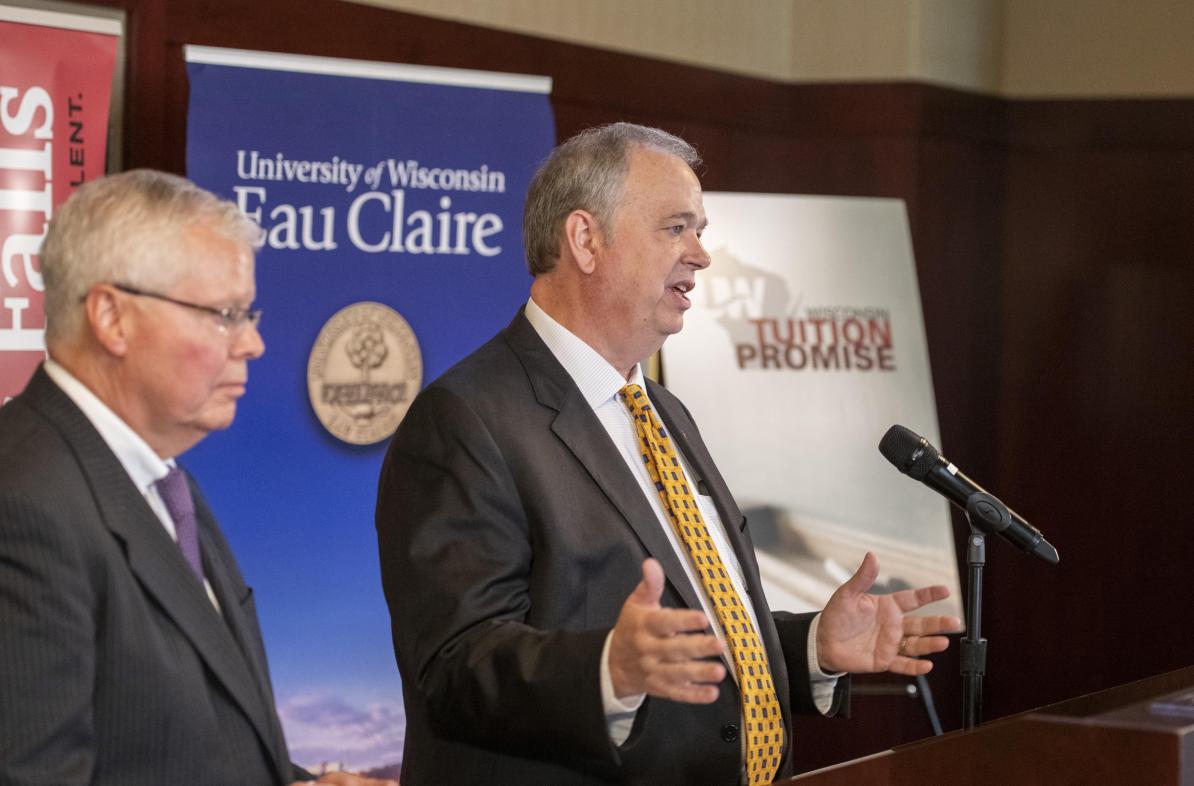Featured Image
For the media

Title
UW System President Jay Rothman announces Wisconsin Tuition Promise with UW-Eau Claire, UW-River Falls, UW-Stout and UW-Superior
Authored on
UW System President Jay Rothman announces Wisconsin Tuition Promise with UW-Eau Claire, UW-River Falls, UW-Stout and UW-Superior
Published on:
Intro text
University of Wisconsin System President Jay Rothman today announced the creation of the Wisconsin Tuition Promise, a new initiative starting in fall 2023 to ensure underserved Wisconsin students can attend any UW System university without paying tuition or fees.
Sections
For the media
For the media
Image download


